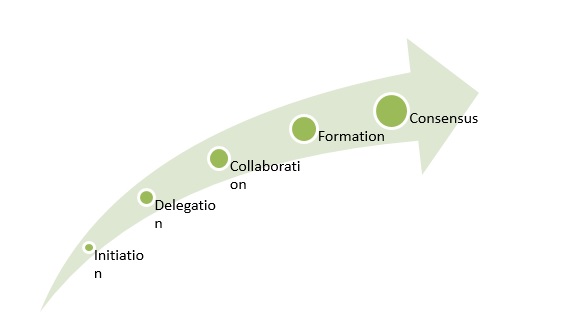Role of Educational Leaders in Curriculum Development
28th June 2021
For administrator leaders, the work runs beyond operational management. The implementation of effective curriculum development lies in the capability of educational leaders in keeping the balance between teams. The role educational administrator in curriculum development is to lead. Plan, delegate and monitor the whole process.
True leadership can be maintained with –
- Simplifying the objective of the each different task
- Maintaining the flow of communication with departments and teams
- conducting meetings with appropriate strategies
- delegating the responsibility and trusting the staff with their work
- Acknowledging the contributions of the staff and listening to the inputs they want to share
Educational administrators are in constant need to make decisions, changes around the institute. With that in mind, a quality curriculum can be produced with the appropriate involvement of the subject expert and team effort. The educational leader can assist the process involved in the creation of a standardized curriculum. So, what are the steps that are involved in developing a curriculum for the target learners!
Here are 5 essential stages for developing curriculum –
Step 1: Initiation
In the primary stage, educational administrators need to plan and define the objectives in making the curriculum. Important questions to ask at this stage are –
Who are the learners! What will be taught to them! How the content will be taught to the learners!
The outlines of work that involves primary tasks –
- The initial administrative duty is to facilitate reexamination of the existing curriculum model.
- To evaluate the details related to the goal of the institute/school, curriculum standard (national/state), and criteria to meet those standards.
- Figure out team members, who are to be in charge of the responsibilities for different agendas, what will their functional role.
Step 2: Delegation
Once the outline of the overall agenda is prepared, the administrative leader will delegate the responsibilities and monitor the progress from time to time. The process of curriculum development involves research teams, curriculum developers, and sometimes even teachers.
The respective team will be responsible for –
- Undergoing research on applicable documents, review relevant literature, and gather appropriate information.
- Viewing prevailing trends of the educational industry
- Prepare the proposal for submission

Step 3: Collaboration
Soon after the initiatory research and review collaborative session need to be held where administrative team members can brainstorm, discuss and form conclusions. The administrative leader’s role here is to –
- Guide and strategize the points of discussions.
- Maintain the affectivity of the discussion session.
- Facilities generation of ideas, selection of materials, knowledge sharing, predict and handle any possible conflict and find a resolution to it.
- Lead the whole team to create the master plan and find out the relevant options that can be concluded as “good fit”.
Step 4: Formation
Now that everything has been organized, it is time to develop the contents of the curriculum. The administrative leader will summarize the intended outcome, and point out the components of the curriculum. Indications of clear objectives are needed to be summarized here with proper measurable tools to measure the learning outcome.
Step 5: Consensus
In the final stage of curriculum development, the master design will be evaluated. The primary objective of including this step is to reach an agreeable stage. The conclusion can only be drawn when the involved experts are in alignment. It involves –
- Revising the final content
- Identify any possible issues relating to resource material and expert conflicts
- Review the contents for the material to ensure the learning objective is measurable
- Incorporating any necessary changes, alternation, and edits
- Reaching the overall consensus of the curriculum team members
Developing a curriculum takes a strategic approach. The involvement of the administrative leader is huge in the process of curriculum development. While it remained in the hand of the subject matter experts to qualify and quality the material content, nonetheless, leading the team to reach its highest potential is the mark of a true leader. Administrative leaders, undoubtedly, are the guiding force in ensuring institutional growth and professional growth of individual participants who are involved in creating the resource content.
Educational Administration and Management course can help you lead the professional role of an administrative leader. Learn the know-how of leading educational organizations in the modern educational system.
Written By: Angira Mitra
Leave a Reply
Recent Posts
- Make Language Learning Fun 5 FunFilling ESL Activities For Teachers To Implement In ESL Classroom
- The Role Of Teachers As Counselors In Eradicating Students Fears
- Achieving Financial Stability For Special Need Parents
- Make Teaching English To Beginners Fun And Engaging With Our 5 Effective Tips
- Achieve A Healthy WorkLife Balance As A Teacher With This Alternative
- Foster A Growth Mindset In Your School Students Teachers And Staff With Proven Strategies


